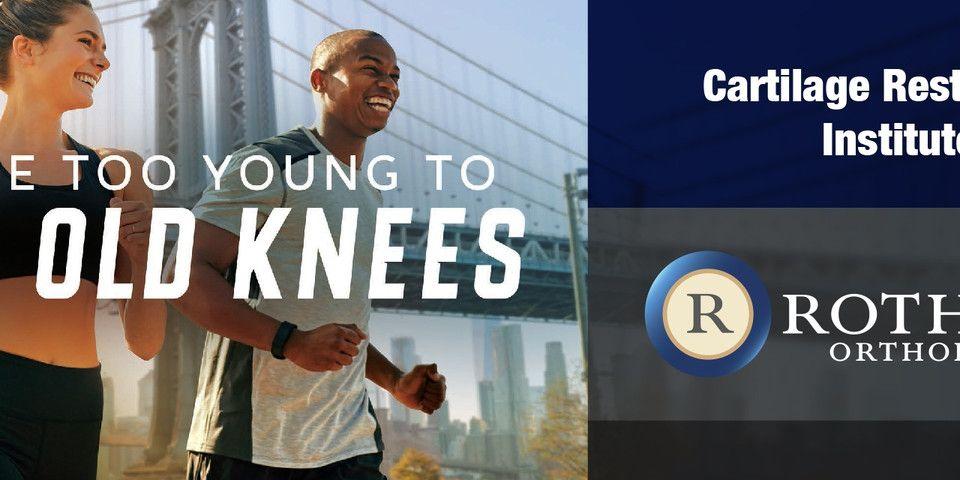Joint Pain Series: Answers to Your Top Questions on Joint Replacement Recovery
Your joint replacement recovery will be as good as your commitment to staying healthy and following your surgeon's instructions. In case you needed some incentive, remember that proper recovery can yield decades of pain relief!
Just in case you missed our article to help you determine whether you may be a good candidate for a joint replacement, take a few minutes to check it out. If you’ve had a physician tell you that joint replacement would be a good idea for your case, or if you suspect that you will soon be headed in that direction, you’re probably wondering about the timeline and details of joint replacement recovery.
Obviously, this topic is contingent first on which joint is being replaced. Hips and knees, the body’s largest joints, tend to be some of the most frequently replaced, and they require a more extensive recovery time than smaller joints, such as the shoulder or elbow. But before we get into some specifics, let’s be sure to define the terms.
Joint Replacement: What is It?
During a joint replacement procedure, the pieces of a damaged joint are removed and replaced with prosthetic parts made of metal, plastic, or ceramic. Joint replacement surgeries can be performed on the hip, knee, ankle, shoulder and elbow. The prosthesis is designed to replicate the movement of a normal, healthy joint, allowing the patient to return to an active, pain-free lifestyle.
Getting Down to Details: Joint Replacement Recovery
There are few serious or likely complications of joint replacement surgeries and as long as you choose a reputable, qualified orthopaedic surgeon, your procedure should go smoothly and your recovery should be very manageable. Of course, like any surgery, there is some level of pain involved, but patients weighing that short-term pain against a lifetime of chronic joint pain consistently choose surgery over the daily battle with arthritis.
Let’s answer a few commonly asked questions concerning the procedure, the joint replacement recovery and its outcomes:
How Long Will I Be in the Hospital?
In some cases, patients may need to remain in the hospital for 1-2 days following their procedure. However, with continued advancements in surgical precision and patient care, many patients are able to go home the next day!
How Soon After Surgery WIll I Be Able to Use My New Joint?
Your physician will encourage you to begin moving your joint and rebuilding strength right away. As soon as you are able, physical therapy will begin to assist you as you learn to work with your new joint. Your return to more demanding activities, including certain sports, will be closely monitored by your surgeon throughout your joint replacement recovery.
What are the Benefits of Joint Replacement Surgery?
-
Minimizes pain and maximizes range of motion
-
Increases ability to perform daily activities with ease
-
Provides patient with a new, healthy joint that will last for many years to come
-
Improves quality of life all around
If you have more questions concerning arthritis treatment in general or joint replacement surgery specifically, we have answers! Visit us here or contact us at 1-800-321-9999. In the meantime, check out the helpful info contained in the various articles of our joint pain series, outlined below:
Joint Series - Blog 1: Why do I Have Joint Pain?
How do I Know if I Have Arthritis
Do I Need to See a Doctor About Arthritis
Joint Series - Blog 2: What are my Treatment Options for Arthritis?
Related Specialties
Related Conditions
Related Treatments
Related Programs
-

Cartilage Restoration Institute
This is a center where patients can go to have their disabled joint biological resurfaced, realigned, and stabilized without having the joint replaced by artificial materials such as metal and plastic. It is well known that the outcomes of patients under the age of 50 undergoing artificial joint replacement are not as good as we would like. Therefore we feel the future of Orthopaedics is to try to restore a joint back to its original anatomy by realignment, ligament reconstruction, and cartilage restoration.Read More -

Hip Arthroscopy Program
Rothman Orthopaedics is one of the nation’s leaders in the growing field of hip arthroscopy. Our program includes experienced board certified surgeons in Pennsylvania, New Jersey and Florida.Read More




